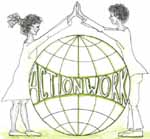|
Dear friends. The network of groups and individuals active in support of the tsunami
affected communities has an opportunity to express its alarm over the
relocation camps being implemented by the Indonesian government (however
well-meant) ?if you would like to add your name and affiliation to this joint
letter we will ensure that it reaches relevant UN, bilateral government aid
organisation, NGO and Indonesian government officials.
If you support this letter please return your message immediately to
peter.droege@newcastle.edu.au or droege@epolis.com.au
Urgent message and advice on tsunami resettlement in Sumatra: rebuilding
communities - not relocation camps
We represent an international alliance to aid community rebuilding in
Post-Tsunami Sumatra. Community rebuilding should take place as quickly as
possible, to reduce individual and group psychological trauma, allow local
sustained economic redevelopment to take place, and for infrastructure
investments to be permanently useful.
We wish to expresses our alarm at the news that temporary resettlement camps
in barracks are being planned, and that permanent solutions may also take
place in camp-like forms. This would be a culturally inappropriate, and highly
wasteful strategy from an aid allocation and investment point of view; and
could be the making of permanent slums. Such camps are likely to deteriorate
quickly, with their hapless, crowded inhabitants at risk of becoming the
forgotten people of Aceh.
Instead, the energy, expense and expertise being planned on the temporary
settlements should be be directed at the longer-term secure settlements. In
addition, the first priority is to allow people to return to, or close to, the
original location ?if they choose to do so, and if these original locations
can be made secure. It should be possible to achieve a satisfactory and
permanent outcome even sooner (or already, had this been done from the start).
That means that the move to the secure locations could be affected at the same
time as that likely to the temporary locations.
In a post-traumatic situation such as this, it is important that
resettlement take place in the form of community rebuilding, and is seen as a
communal learning and healing process ?and a process of gaining economic
viability. New houses must not take the form of anonymous barracks shared with
a large number of strangers of both genders. New forms of home need to
consider the definition of family. In Aceh, many widowed wives or husbands now
exist with only their remaining son or daughter, or surviving grandparents
with their orphaned grandchild. Is it not appropriate to co-locate different
families in crowded, passive conditions.
Appropriate forms of settlement are not found by designing a cluster or group
of barracks. Even temporary shelters must deploy sustainable forms of energy
provision, water provision and waste management ?not institutional solutions
that require external administration. We urge the embrace of community design
and development processes to be applied immediately.
Instead of building barracks, single room units should be built on secure
sites as "starter units", using small contractors, working to a variety of
individual designs, communally managed, with many community members also
finding employment and training opportunities in the construction process.
In this way the construction may even take less time, and without the need to
bring in large trucks, and therefore to construct large roads, and it would
also cost less than the barracks being proposed. These starter units would
then provide the basis for the households to build their lives - make an
investment for the future. Public buildings such as mosques, churches,
schools, health centres and gathering halls should be designed and provided to
anchor social activities. Under our recommended strategy, the schools and
clinics being built would then also be in their permanent locations, and would
not have to be dismantled when the populations need to be relocated once more.
We urge to immediately commence the process of active, community engaging
rehabilitation in permanent community locations, and are ready to advise and
assist in developing appropriate strategies, based on experience from similar
conditions elsewhere.
Peter Droege
U of Newcastle/NSW
Planning Institute of Australia
World Council for Renewable Energy
Babar Mumtaz
Development Planning Unit
University College London
|

